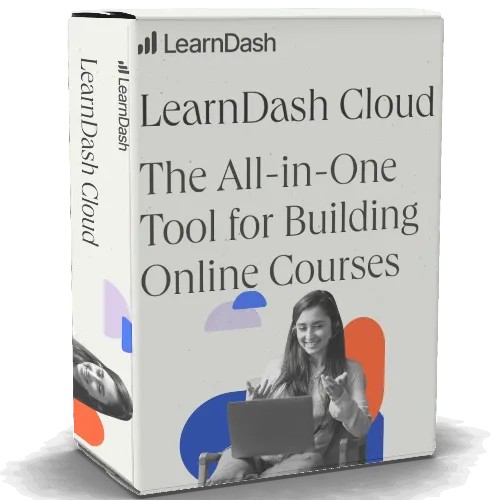In an era where online education is rapidly gaining traction, the demand for robust learning management systems has never been higher.
For entrepreneurs and educators seeking to harness the potential of digital learning, LearnDash stands out as a premier solution.
This comprehensive guide aims to provide you with in-depth insights into LearnDash to Boost Your Online Course Business, a powerful WordPress plugin designed to create and manage online courses with ease and efficiency.
Whether you’re an experienced course creator or a newcomer to the e-learning landscape, understanding LearnDash can significantly enhance your online course business.
From its user-friendly interface to its advanced features like quizzes, certificates, and dynamic course paths, LearnDash offers a versatile platform that caters to a diverse range of learning needs.
This guide will walk you through everything from installation and setup to the best practices for maximizing engagement and monetization strategies.
By leveraging the tools and techniques outlined in this guide, you can elevate your online courses to new heights, ensuring not only a seamless learning experience for your students but also sustainable growth for your business.
Prepare to unlock the full potential of your online education venture with LearnDash as your cornerstone.
Table of Contents Boost Your Online Course Business
LearnDash enhances your online course experience
With its robust features and user-friendly interface, this platform elevates the online educational landscape by providing a seamless learning journey for both instructors and students.
Course creators can easily design engaging learning modules, integrate multimedia content, and utilize various assessment tools to track student progress.
This flexibility allows educators to tailor the learning experience to meet diverse learner needs, fostering greater engagement and retention.
Furthermore, the platform’s analytics and reporting capabilities empower instructors with valuable insights into student performance.
By tracking key metrics, educators can identify areas where learners may struggle and adjust their content or teaching strategies accordingly.
This data-driven approach not only enhances the educational experience but also ensures that instructors can deliver targeted support, ultimately leading to improved learning outcomes and higher course completion rates.
Create engaging courses with customizable features
The ability to create engaging courses with customizable features significantly enhances the educational experience for both instructors and learners.
Course creators can customize various elements—ranging from the curriculum layout to interactive components—allowing them to address specific learning objectives and cater to individual preferences.
This level of personalization not only makes the courses more appealing but also encourages active participation and deeper understanding among students.
By integrating quizzes, discussion forums, and gamified elements, instructors can foster a dynamic learning environment that keeps students motivated and invested in their educational journey.
In addition to course structure, customizable features such as branding and design options enable educators to maintain consistency with their personal or organizational identity.
This professional touch not only builds trust with learners but also enhances the overall aesthetic of the learning platform.
As a result, the combination of engaging content and a tailored user experience not only attracts new students but also retains existing ones, ultimately contributing to a thriving online course business.
Track learner progress with detailed analytics
monitoring learner progress through comprehensive analytics provides educators with invaluable insights into student engagement, performance, and overall course effectiveness.
By leveraging detailed data on completion rates, quiz scores, and participation levels, instructors can identify trends and areas for improvement within their courses.
This information allows for timely interventions tailored to individual learner needs, ensuring that no student is left behind and that each one can reach their full potential.
Furthermore, robust analytical tools empower course creators to refine content and instructional strategies based on real-time feedback.
Educators can evaluate which components resonate with students and which may require adjustment, ultimately leading to a more refined and effective learning experience.
This data-driven approach not only enhances the quality of instruction but also contributes to higher retention rates and learner satisfaction, ultimately driving the success of online education initiatives.
Integrate seamlessly with popular WordPress plugins
The ability to effortlessly integrate with a wide array of popular WordPress plugins enhances the flexibility and functionality of LearnDash, enabling course creators to tailor their learning environments to meet specific needs.
Whether utilizing membership plugins to manage user access, eCommerce solutions for streamlined payment processing, or social sharing tools to foster community interaction, these integrations provide a cohesive ecosystem that supports diverse educational objectives.
This adaptability ensures that educators can leverage the power of existing tools and services, allowing for a more enriched and engaging learner experience without the need for extensive technical knowledge.
Moreover, the integration capabilities extend to enhancing course delivery and user engagement through plugins designed for gamification, email marketing, and dynamic content.
By incorporating these features, course developers can create a more interactive and motivating learning atmosphere, which is essential for maintaining learner interest and participation.
As a result, educators can not only improve instructional effectiveness but also foster a vibrant online community that encourages continuous learning and collaboration among peers.
Use quizzes to assess student knowledge
Quizzes serve as a vital tool for evaluating student comprehension and retention of course materials.
By incorporating formative assessments throughout the learning journey, educators can identify knowledge gaps and adjust their instructional strategies accordingly, fostering a more personalized learning experience.
Quizzes not only measure student understanding but also encourage active participation and self-assessment, motivating learners to engage with the content more thoroughly.
Furthermore, utilizing a diverse range of question types—such as multiple-choice, true/false, and open-ended questions—can cater to different learning styles and encourage critical thinking.
Immediate feedback provided after quiz completion enhances the learning process, allowing students to recognize areas for improvement while reinforcing their strengths.
Overall, integrating regular quizzes within an online course framework not only enhances the educational experience but also contributes to improved learning outcomes.
Offer various course formats for flexibility
Providing a variety of course formats is essential for accommodating diverse learner preferences and schedules.
Whether offering self-paced modules, live virtual classes, or blended learning options, flexibility in course delivery can significantly enhance engagement and accessibility.
Self-paced modules allow learners to progress at their own speed, catering to those with busy lifestyles or differing levels of prior knowledge.
In contrast, live virtual classes foster a sense of community and real-time interaction, enabling learners to ask questions and collaborate with peers and instructors.
Moreover, incorporating multimedia resources such as videos, interactive simulations, and downloadable materials can further enrich the learning experience.
This variety not only addresses different learning styles but also keeps the content dynamic and engaging.
By offering multiple formats, educators empower students to choose the delivery method that best suits their needs, leading to improved satisfaction and outcomes in their learning journey.
Adapting course formats to provide this level of flexibility ultimately supports a more inclusive and effective educational environment.
Encourage student interaction through discussion forums
Facilitating student interaction through discussion forums can significantly enhance the learning experience by fostering a collaborative environment where learners can share ideas and insights.
These forums serve as a vital space for students to engage in meaningful dialogue, ask questions, and provide feedback on course content.
By creating an avenue for students to express their thoughts and connect with peers, educators can encourage deeper understanding and retention of material, as well as promote critical thinking and diverse perspectives.
In addition, active participation in discussion forums cultivates a sense of community among learners, which is particularly important in online and remote learning settings.
When students interact with one another, they are more likely to feel a sense of belonging and support, which can boost motivation and commitment to the course.
Regularly monitoring and facilitating these discussions can further enhance the experience, as instructors can guide conversations, address misconceptions, and highlight key topics, thereby enriching the overall educational journey.
Implement certificates and badges for achievements
Incorporating certificates and badges as recognition for achievements can serve as powerful motivators for learners, reinforcing their commitment and encouraging ongoing engagement with course material.
These tangible rewards not only signify the completion of specific milestones but also provide a visual representation of skills acquired and knowledge gained.
By establishing a clear framework for earning these credentials, educators can guide students through the learning journey, showcasing their progress and inspiring them to strive for further accomplishments.
Moreover, the implementation of certificates and badges can enhance the perceived value of an online course, making it more appealing to prospective learners.
When students see that their efforts will be acknowledged and rewarded, they are more likely to invest time and energy into their studies.
Additionally, these credentials can be shared on professional networking platforms, allowing learners to enhance their resumes and online profiles.
This not only benefits the student but also increases the course’s reputation, amplifying its reach and attractiveness to a broader audience.
Optimize your course for mobile users
To ensure a seamless learning experience, it is essential to tailor your course content for mobile users.
With the increasing reliance on smartphones and tablets for accessing educational materials, optimizing your course layout and features for mobile devices can greatly enhance user engagement.
Responsive design is key; it allows course materials to adjust dynamically to different screen sizes, ensuring that users can easily navigate through lessons, assignments, and discussions without frustration.
Furthermore, simplifying navigation and minimizing load times can significantly improve the mobile learning experience, fostering a more conducive environment for learning on the go.
In addition, incorporating mobile-friendly multimedia elements—such as audio and video that play well across devices—can enrich the learning process while accommodating the diverse preferences of learners.
By prioritizing mobile accessibility, educators not only meet the needs of a growing demographic of mobile learners but also demonstrate a commitment to providing an inclusive and flexible learning environment.
This approach can lead to higher completion rates and increased satisfaction, as students appreciate the ability to engage with course content anytime and anywhere.
Leverage marketing tools to increase enrollment
Effective marketing strategies are crucial for driving enrollment in online courses.
By utilizing a combination of digital marketing tools, such as email campaigns, social media marketing, and search engine optimization, course creators can reach a broader audience and engage potential students more effectively.
Targeted advertisements can highlight the unique features of the courses, showcasing testimonials and success stories that resonate with prospective learners.
This strategic approach not only increases visibility but also builds trust and credibility, essential factors in converting interest into enrollment.
Additionally, implementing analytics tools allows educators to track the performance of various marketing efforts, providing insights into what resonates with their target audience.
This data-driven approach enables course creators to refine their marketing strategies continuously, optimizing campaigns for better reach and engagement.
By leveraging these marketing tools, educators can create a compelling narrative around their courses, ultimately driving enrollment and fostering a vibrant learning community.
In conclusion, leveraging LearnDash can significantly enhance your online course business by providing a comprehensive and user-friendly platform tailored for both educators and learners.
With its robust features, such as advanced tracking, customizable course structures, and seamless integration with various tools, LearnDash empowers course creators to deliver engaging and effective learning experiences.
By implementing the strategies outlined in this guide, you can maximize your course offerings, improve student engagement, and ultimately drive higher revenue.
Embracing LearnDash not only positions your business for success but also enables you to make a meaningful impact in the world of online education.

